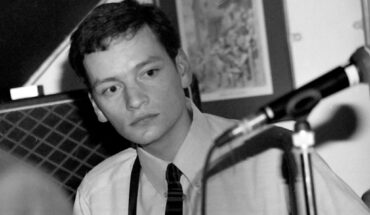The prince of afrobeats on his latest release
Charming, charismatic, with a deep voice and a rolling accent to boot, you can’t but take to the rising R&B star that is Anis Halloway. Humble and yet brimming with confidence, the optimism of Anis knows no bounds. With the lights dimmed in his home studio in Lagos, Nigeria, his smile beams forth as his head bobs side to side like Ray Charles, such is his zest for life. Sometimes he looms in close for emphasis; other times he sits back and peals a hearty laugh. Either way, his XL persona is barely contained.
The afrobeats prince just turned 33 and things are looking good. Anis has begun work on his second solo album which means releasing singles until he has enough tracks for the final release. (In Africa, the album often comes last). So far he has dropped Think I love You and Speechless. The former appears on Silvastone’s afrobeats compilation Résumé; the latter earned him the no. 1 position on DJ Edu’s afrobeats chart in the UK. His face sparkles when he learns of the news.
“You know, back in the day I used to think I had to wait for like, a bag of money first before I do the music because music is very demanding. It’s a very expensive industry, you know. I’ve just learned to be consistent and I can see the consistency paying off. It’s a big order to have a song playlisted in the UK without even being there. That’s awesome!”
Afrobeats is the genre currently sweeping the clubs of London. The tech-savvy child of the dance which hit the halls some 40 years ago, the afrobeats of today fuses hip hop, R&B and reggae with African sounds – layered vocals, percussion, tinny guitars and ethnic patois. It belongs to a broader burgeoning of continental pride celebrated by those in the homeland and the diaspora. Although afrobeats has been brewing in clubs for years, the media is finally paying attention, the Guardian calling it the new sound of the UK underground just last year. The irony for Anis is that he recently returned to Africa from the UK and he remarks how similar “afrobeats” (he gestures using over-sized scare-quotes) is to the funky or soulful house he knew in the noughties.
“For me to infuse it, it’s easier because I used to hear that as a more refined, soulful form of ‘ba boom boom boom’ (his deep voice rumbles as he claps the beat) you know, which really originated from Africa anyway.”
Does Anis consciously styles his music around the genre? “I try not to pigeonhole it too much. As a writer I’m in the studio and I feel inspired to do a song but if it’s more toward the soulful R&B vibe, I let it flow that way but if some congas and funny African shakers enter, that’s just about the African aspect. That’s just natural.”
Born in 1983 in Freetown, Sierra Leone, Anis’ childhood was steeped in theatre and the gospel tradition. Then the brutal civil war broke out. Anis considers himself fortunate that his scars are only on the inside. Indeed, the most compelling track from his first album, Small beginnings (2011) – We nor wan dat – is a plea for peace based on his experience of the war. Tissue alert, sensitive souls, the music shoots from the heart though its beauty is offset by some pretty nasty imagery. “It obviously came from a personal experience being in Sierra Leone in the closing of the ten-year civil war which was a life threatening experience for me. I had no other choice but to put that in my music to express the pain and the horror that I experienced. Seeing the blood, you know, the video is virtually an autobiography.”
He escaped Sierra Leone at the tail-end of the war and arrived in Britain in 2003, studying sound engineering while practicing his trade on the turntables of London. His single Eyes on Me (2004) with GMD records was an underground success which gained him the attention of the likes of BBC 1xtra. During that time Anis forged a strong working relationship Silvastone which continues to this day. “We’re actually going to Freetown next month. We want to shoot a couple of more new videos for the new singles, for him and also for me, and maybe just work with a couple of other artists so, it’s great.”
Returning to Sierra Leone in 2009, Anis stood out in the crowd. “I personally don’t think there’s anybody as an artist, who makes me want to shake in boots because I know I can deliver if I go to the studio, I can hold my own.”
Anis still works the grind and muses that many whom he started out with in London have long since thrown it in for a day job. His continued inspiration is a sure sign that he is on the right path. The sky’s the limit? “An understatement!” he roars.
Ghofur Woodruff





